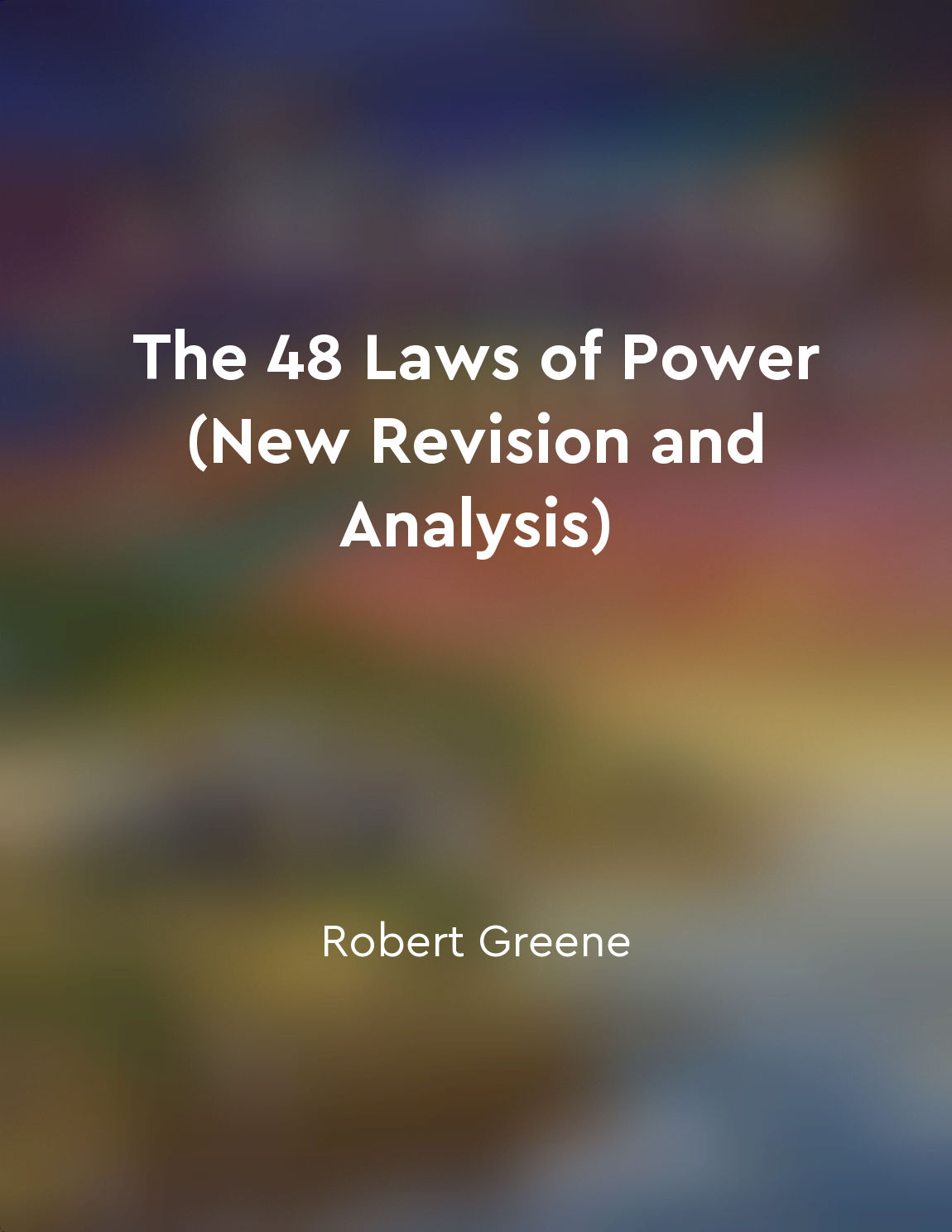Popper rejects the idea of historical inevitability from "summary" of The Open Society and Its Enemies by Karl Raimund Popper
Popper firmly opposes the notion that history follows a predetermined course, arguing against the belief in historical inevitability. He criticizes the deterministic view that historical events are bound to unfold in a certain way, emphasizing that such thinking leads to dangerous consequences. Popper highlights the dangers of historical determinism, as it can be used to justify oppressive regimes and totalitarian ideologies. By rejecting historical inevitability, Popper advocates for a more open and critical approach to understanding history. According to Popper, the belief in historical inevitability is rooted in a teleological view of history, which sees events as leading towards a predetermined end or goal. This deterministic perspective, he argues, denies the role of human agency and freedom in shaping historical events. By attributing historical developments to an inevitable progression, this view limits our ability to learn from the past and make informed choices in the present. Popper further asserts that the idea of historical inevitability is often used as a justification for authoritarian rule. Totalitarian regimes, he argues, rely on the belief that history is moving inexorably towards a certain outcome to justify their oppressive actions. By rejecting historical inevitability, Popper challenges the legitimacy of such regimes and calls for a more critical examination of historical processes. In contrast to the deterministic view of history, Popper advocates for an open and critical approach that recognizes the contingent nature of historical events. He emphasizes the importance of individual agency and the role of unintended consequences in shaping history. By rejecting historical inevitability, Popper invites us to question dominant narratives and engage in a more nuanced understanding of the past.- Popper's rejection of historical inevitability is a call to embrace uncertainty and complexity in our understanding of history. By challenging deterministic views and advocating for a more open and critical approach, he encourages us to explore the contingencies and possibilities that shape historical events. In doing so, Popper invites us to engage with history in a more reflective and responsible manner.
Similar Posts
Hope is a force for good in the world
Hope, the belief that things can get better, is a powerful force that has shaped the course of human history. When people dare ...
Knowing when to show mercy can be strategic
Knowing when to show mercy can be strategic. This is a crucial concept that Machiavelli discusses in "The Prince." Mercy, accor...
The open society is a dynamic and evolving entity
The open society is not a fixed or static structure; rather, it is a constantly changing and developing entity. It is a society...
Human nature is defined by a desire for recognition
The fundamental nature of humanity can be understood through a lens of recognition. This desire for recognition is deeply ingra...
Everything is interdependent
The notion that every thing is inextricably linked to every other thing is not just a philosophical abstraction; it is a fundam...

Avoid the spotlight
To avoid the spotlight means to keep a low profile, to blend in with the crowd, and not draw attention to oneself. This is a va...
Historical knowledge is never complete or definitive
Historical knowledge is an ever-evolving and dynamic entity, subject to continuous reinterpretation and revision. This is becau...
Popper champions the idea of fallibilism
Fallibilism is a concept that stands at the heart of my philosophy. It is the idea that all knowledge is conjectural and can be...

